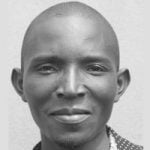Hot FM and Prime Television have opposed the Independent Broadcasting Authority (IBA)’s directive that all radio and television stations submit their broadcast content to the authority every two weeks.
Hot FM proprietor Oscar Chavula says presenting the recordings every two weeks is a costly undertaking, arguing that it is IBA’s mandate is to collect content from broadcasting stations using their own resources, “not directing broadcasters to spend their resources to perform the authority’s mandate”.
And Prime TV owner Gerald Shawa has since written to the IBA through the Zambia Independent Broadcasters Association seeking audience with the authority over the matter.
In an interview, Chavula said the IBA directive was illegal as it was not backed by law and that they would take the matter to court if the radio station is forced into it.
“Primarily, we think that it is not a well thought idea simply because it does not take into consideration the cost for the broadcasters to take the recordings every after two weeks. We now have to find resources to be able to save these recordings and later on take them to IBA. It means that we would be required to cover the costs that should be covered by the IBA itself; because it’s their mandate to ensure that they secure the recordings. The IBA Act of course requires us to keep recordings and submit to the authority upon request, but it does not back the directive that they have come up with. There is nowhere in the Act where broadcasters are required to take the recordings to IBA using their own means every two weeks,” Chavula said.
“So this directive is not legal and we can challenge it in court if they come for us. There is no way they can be coming up with directives in such a manner simply because they are a regulating authority, without considering the players in the industry, without any consultation whatsoever. They needed to do some consultations and hear the views of the broadcasters before they could proceed with this directive.”
And Shawa feels the directive, apart from being costly, is meant to suppress divergent views.
“The Act does not say every two weeks, it says at certain intervals. We are told to keep our footage every three months, but this directive says two weeks, no! As Zambia Independent Broadcasters Association (ZIBA), we have written to IBA to engage them. They are putting it very lightly but it’s a lot of work. You need to employ someone just in charge of securing content for IBA. How many hard drives are we going to buy? You can imagine even just to download a clip, it takes that long and has a cost attached, so to be doing that [every two weeks] will be very expensive,” Shawa said.
“They can talk to Topstar because that’s where we take our signals so they are able to see and record all our content. And even if they are suggesting that we should be the ones to be taking, at whose cost? It’s very expensive, it’s not attainable! In other countries, they have detective systems which monitor the content whereby even when you put obscene content, an alarm will be sounded and they will be able to detect it. We also have companies in this country that place advertisements for other companies and they have systems they use to monitor if you have played their clients adverts on time. IBA can do that as well to monitor the content, unlike the route they have taken.”
He said the directive was aimed at fixing opposition political party leaders and other citizens with divergent views.
“I think the idea is just to fix the opposition or people with divergent views, that so. Not that they are just following the act. Can you believe that they have the time to watch everything? Because just one day’s content, they can’t manage to watch in a day from all broadcasters across the country, so what about content for two weeks from all radio stations and TV stations? It’s a joke! It’s not possible, they don’t even have the capacity to watch all of us,” said Shawa.
























